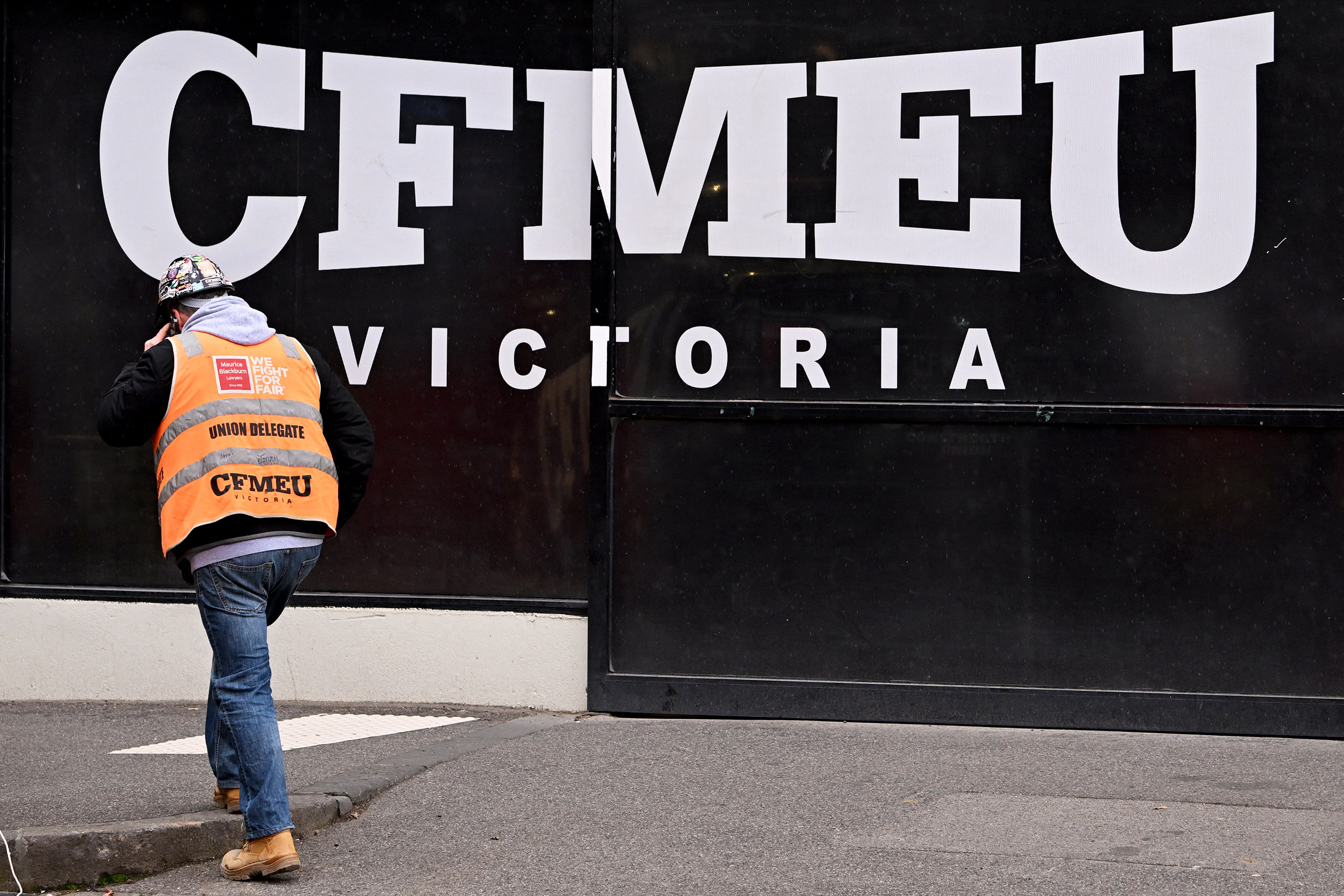In a story reminiscent of Jimmy Hoffa’s International Brotherhood of Teamsters, the allegations of corruption in the Construction, Forestry and Maritime Employees Union just keep on coming from the Nine papers. It’s all there: kickbacks, organised crime, wads of cash passing under a table and high levels of political intrigue — plus that unmistakeable twenty-first century phenomenon, the string of embarrassing text messages.
But one question has largely been overlooked this week: when does a union boycott of third-party contractors — in this case the CFMEU’s choice of which union-affiliated suppliers can be used on projects, to which the building and infrastructure giant John Holland is alleged to have secretly acquiesced — become a cartel, and therefore breach of the Competition and Consumer Act?
Speaking to the Australian Financial Review on Thursday, former Australian Competition and Consumer Commission chair Rod Sims urged the agency to pursue the question vigorously, just as he had when he pursued the CFMEU over two other cases.
But it’s one thing to argue that a union forcing a builder to deal exclusively with specific contractors amounts to the rigging of a tender process — and, by implication, a distortion of a market. It’s another to win that argument in a court of law. And that’s something Sims knows only too well.
On Sims’s watch, an ACCC-backed criminal-cartel prosecution of the union and one of its ACT officials collapsed; another lawsuit, also launched by Sims, tackled the relationship between the union and Hutchinson Builders, a Brisbane construction company; it has also run into serious problems.
Cartel actions are hard to win: Inside Story readers might recall that the first criminal-cartel case launched in Australia for more than a century, against disability-aid retailer Country Care, foundered in 2021 on the terms of the immunity offered to a key witness. Both the company and the individual defendants were acquitted.
Earlier this year, the ACCC announced it would attempt to have the High Court hear an appeal of the Hutchinson case, which deals specifically with union–company deals. If the court grants the regulator special leave to appeal, we might soon have some clarity on the question at issue: can a union’s blacklisting of third-party contractors that don’t use unionised labour, and a builder’s succumbing to the union’s threats, be treated as an illegal cartel?
The ACCC’s current chair, Gina Cass-Gottlieb, has been far more cautious in competition enforcement than her predecessor. In the first two years of her leadership, her agency has announced few antitrust court actions and federal prosecutors haven’t launched any new criminal-cartel cases. Chances are that the ACCC is waiting to see whether the High Court allows its CFMEU appeal to go ahead and, if so, the degree to which this will help clarify the legality, under competition law, of union-led contractor boycotts.
Recent courtroom clashes between the regulator and the CFMEU suggest the ACCC is facing an uphill battle. The criminal-cartel prosecution in the ACT, which relied on a joint investigation of the ACCC and the Australian Federal Police, collapsed in 2021 over concerns about witness reliability. The charges alleged that the CFMEU and one of its officials had attempted to induce scaffolding suppliers into illegal pricing agreements — in other words, the union had attempted to orchestrate a pricing cartel.
The civil lawsuit in Brisbane, by contrast, dealt with the issue of union boycotts against non-union contractors in a more focused way. The ACCC alleged that Hutchinson had succumbed to union pressure to terminate its contract with an independent waterproofing subcontractor on a building project.
The ACCC concluded that, regardless of whether Hutchinson had been pressured into not working with non-unionised contractors, the agreement it had reached with the CFMEU amounted to a cartel. A Federal Court trial judge agreed and, in 2021, fined the union $1.3 million. A full bench of the Federal Court then overturned the fine, prompting the ACCC to ask the High Court to consider its appeal.
If that case is ultimately heard by the top court, the ACCC will need to win it. At stake are key legal principles that have underpinned the competition agency’s recent wins against BlueScope Steel for attempted price-fixing and Canberra ventilation contractor Delta Building Automation for attempted bid-rigging.
Given that the High Court has recently shown little interest in reviewing competition law matters, it’s a perilous legal path for the regulator.
In 2020, for example, the ACCC asked the court to overturn the Pacific National–Aurizon merger-and-competition decision. The High Court declined to hear the appeal, despite the ACCC’s determination to challenge the Federal Court’s unwavering confidence in companies’ legal undertakings — commitments that the regulator argued weren’t worth the virtual paper they were written on.
If the ACCC’s CFMEU appeal succeeds, however, it could pave the way for fresh antitrust enforcement; if it fails, the Competition and Consumer Act will no longer be seen as a weapon in the fight against union boycotts of non-unionised building contractors, and potentially anti-competitive practices more broadly. •




